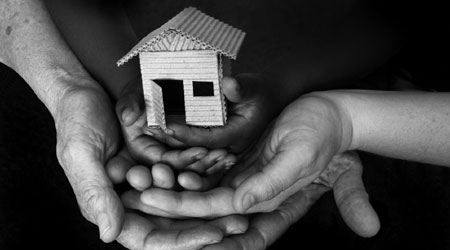This week, I spent three hours at a public hearing of New York State’s Education Reform Commission, hosted by the Bank Street College of Education. I listened, along with a respectable, if not overflowing, audience—this was smack in the middle of the work day—to testimony that covered the waterfront: from system structure, to teacher quality, to early education, technology, parent engagement, and equity. I was riveted (mostly), my wonkish cravings fed delicious helpings of politics and policy, New York-style (read: intense). You can check out the in your spare two seconds of time—one young mom I know catches up in the middle of the night!—or, better yet, submit your ideas at , the Commission’s web page.

Here are a few highlights (skewed toward ECE, of course):
Katherine Eckstein, Director of Policy at the Children’s Aid Society, talked about , 15 of which CAS has implemented in NYC over the past two decades. Grounded in of human development, and groundbreaking work, these schools give us a shot at answering Eckstein’s important question: How do we address non-academic barriers to learning? “We’re missing systemic support,” she noted, encouraging districts across the state to use community schools, which include services designed to remove barriers to students’ learning and healthy development, an as an education reform strategy.
, Northeast Region Executive Director at J.P. Morgan Chase Foundation, moved the testimony down the developmental spectrum. “We need to level the playing field,” she said, emphasizing that “it’s not level for three-year-olds.” Jasmin’s philanthropic thrust is also in the Bronfenbrennean mold, focused on neighorhoods, and the connections between children and families and all the institutions in the larger community: health and social service providers, public schools, nonprofit organizations, the workplace. Equity—or the lack thereof—drives the work. “Let’s shut down the school-to-prison pipeline,” she said.
Nancy Kolben, Executive Director of the Center for Children’s Initiatives, briefed the Commission on the campaign, a partnership of Winning Beginning New York, Citizen Action and the Alliance for Quality Education. , the state’s Quality Rating Improvement System, is a key strategic element of this work. The campaign recommended that NYS create a Ready for Kindergarten Innovation Fund in fiscal year 2013-14 that targets expansion of Pre-K in high-needs school districts, coupled with a $20-million investment in QUALITYstarsNY, most of it—$16.4 million—targeted to direct supports for programs and providers, including professional development and technical assistance.
Eloise Messineo, Executive Director of the Executive Leadership Institute, called for investment in ongoing professional development, mentoring for first- and second-year teachers and principals, and more effective systems coordination. “Teachers won’t be able to meet the demands of impending reforms,” she said, a preface to her recommendations. Messineo knows the stakes from her own professional experience, as principal of the Brandeis High School in NYC, which was forced to close during her tenure. As noted by , Executive Director of the Metropolitan Center for Urban Education, in a blog post at Gotham Schools: “Holding principals accountable when they cannot control important aspects of the school environment is neither fair nor always an effective means of promoting improvement.” By the way, I couldn’t help noticing that the current web page for ELI’s remains empty.
Here’s my recommendation to the Commission, piggybacking on Eckstein’s and Jasmin’s comments: For the entire educational enterprise to be successful, the state must live “cradle-to-career,” adopting a more holistic, comprehensive approach to strengthening children and families. The Initiative has been plying this paradigm for years, including here in NYS. In the absence of adequate health and mental health services, nutrition, early intervention, home-visiting, paid family leave, and other critical supports, not to mention professional preparation and leadership development for all ECE providers, our state’s most vulnerable children will continue to be left behind.
I’d love to hear your recommendations for the NYS Education Reform Commission. Please join the conversation right here.


